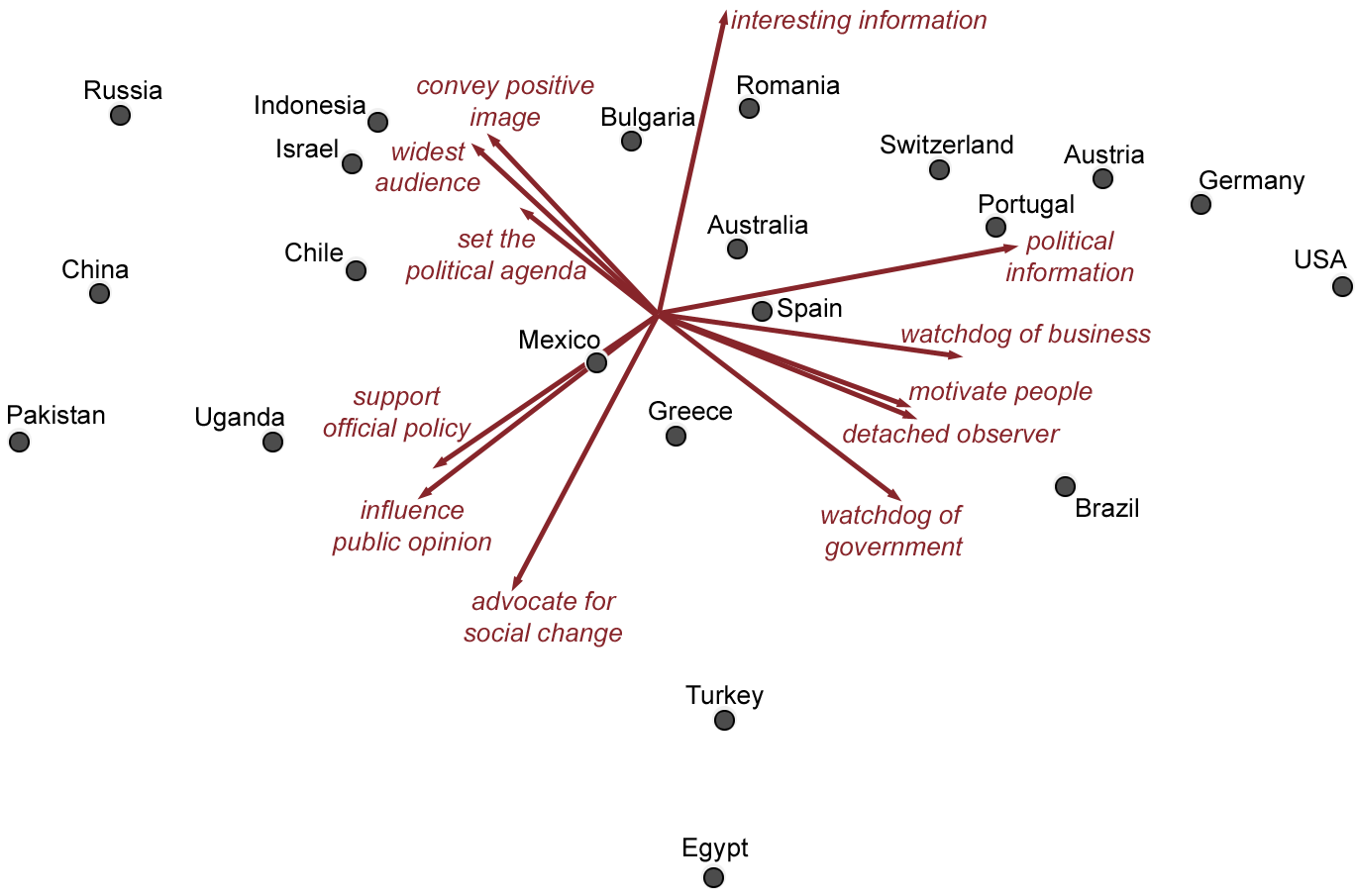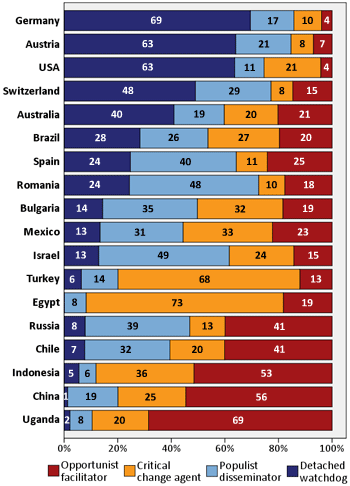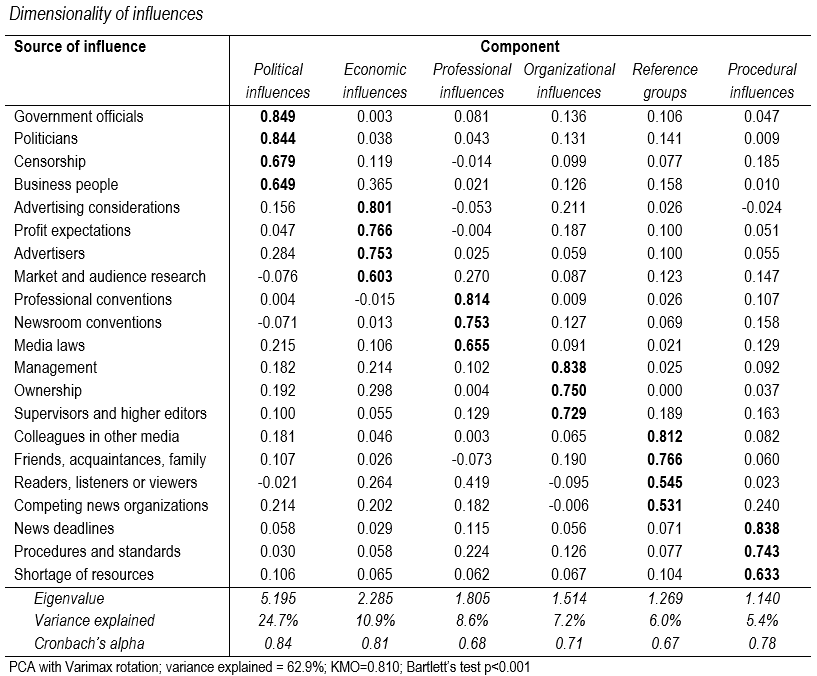The WJS 2007–2011 Pilot Study
Journalism cultures: values of detachment and non-involvement reign supreme
One of the main goals of the study was to comparatively explore differences in journalism cultures – that is, the role perceptions, epistemological orientations and ethical views of journalists – around the world. Findings indicated that detachment, non-involvement, providing political information and monitoring the government were considered essential journalistic functions around the globe. Impartiality, the reliability and factualness of information, as well as adherence to universal ethical principles were also valued worldwide, though their perceived importance varied across countries. Various aspects of interventionism, objectivism and the importance of separating facts and opinion, on the other hand, seemed to play out differently across cultures. Western journalists were generally less supportive of any active promotion of particular values, ideas and social change, and they adhered more to universal principles in their ethical decisions. Journalists from non-western contexts, by way of contrast, tended to be more interventionist in their role perceptions and more flexible in their ethical views (see below).

In addition, the study found four global professional milieus of journalists: the populist disseminator, detached watchdog, critical change agent and the opportunist facilitator. The detached watchdog milieu clearly dominates the journalistic field in most western countries, while the milieu of the opportunist facilitator reigns supreme in several developing, transitional and authoritarian contexts. In accordance to the theoretical propositions, relatively little professional autonomy was found in contexts with rather strong corporate and commercial influences.

Perceived influences on the news: political and economic influences seem less powerful
Another main area of interest was the journalists’ perceived influences on news work. Principal component analysis revealed a dimensional structure that consists of six conceptually and empirically distinct domains: political, economic, organizational, professional and procedural influences, as well as reference groups (see below). Across all investigated countries, these six dimensions turned out to build up a hierarchical structure where organizational, professional and procedural influences are perceived to be more powerful limits to the journalists’ work than political and economic influences. The various domains of influence tend to cut across the organizational boundaries of the newsroom.
Further analysis confirmed the expectation that political and economic factors are clearly the most important denominators of cross-national differences in the journalists’ perceptions of influences. Furthermore, perceived political influences are clearly related to objective indicators of political freedom and ownership structures across the investigated countries. Economic influences seem to have a stronger impact in private and state-owned media than in public newsrooms, but they are not related to a country’s economic freedom. With respect to organizational, professional and procedural influences, as well as the impact of reference groups, the differences between the countries turned out to be much smaller.

Trust in public institutions: alarming signs of little trust
Since the news media are often accused of playing a key role in the erosion of confidence in public institutions, we have explored this issue further. Evidence suggests that journalists around the world have indeed little trust in political parties and politicians. This finding is strikingly consistent across the investigated societies, but there is also some considerable variation: Journalists in western nations are generally more trustful than their colleagues in non-western countries. Closer analysis shows that journalists’ trust levels are significantly associated with some important measures of political and economic performance, most notably with public satisfaction with a country’s economic and political situation. Furthermore, journalists in non-western countries were indeed less trustful of public institutions than the general publics, while in none of the investigated western countries turned journalists out to be less trusting than the general population.
Selected tables
(mean scores and standard deviations across countries)
Journalism cultures: institutional roles (pdf)
Journalism cultures: epistemologies (pdf)
Journalism cultures: ethical ideologies (pdf)
Professional autonomy (pdf)
Perceived influences on news work (pdf)
Trust in social institutions (pdf)
